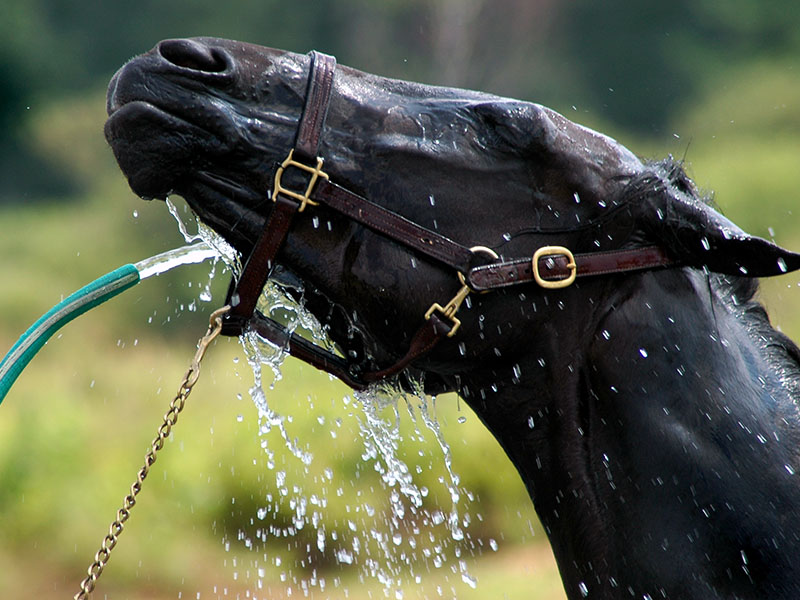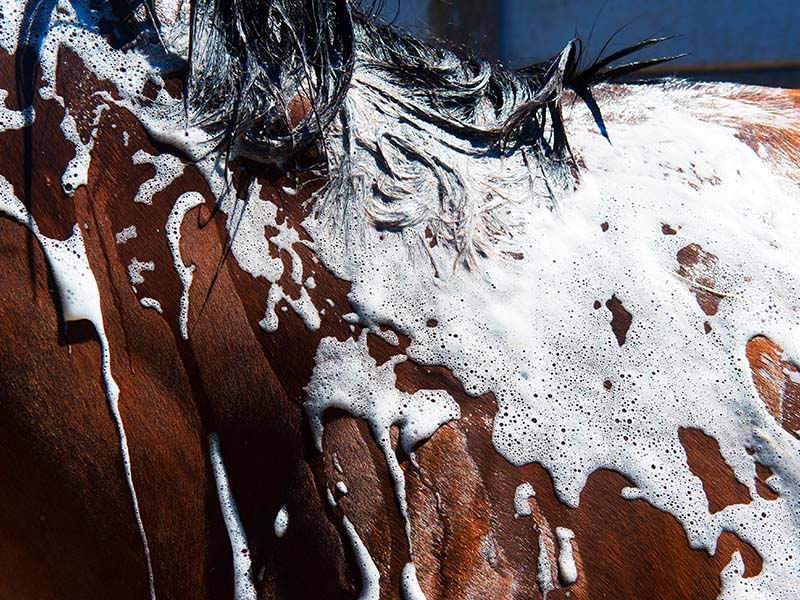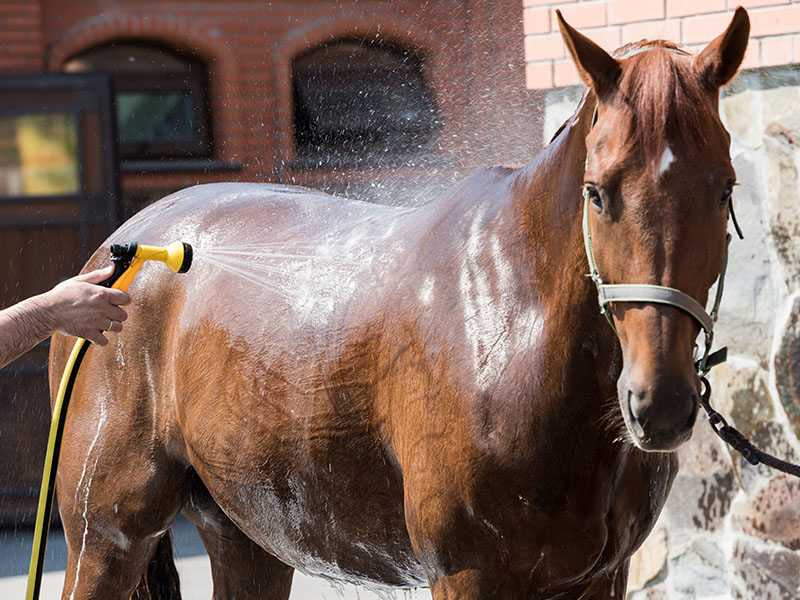Heat stress can occur in all horses, and can occur over a relatively short period of time, particularly in the case of unfit athletes worked strenuously in high ambient temperatures, or can occur from protracted fluid and electrolyte loss during exhaustive exercise (I.e. Racing/endurance rides).
Horses normally cool their bodies through processes known as radiation, evaporation, and convection. These processes allow horses to dissipate heat from the core of their bodies to the outer surfaces to be removed. In hot, humid conditions these normal cooling mechanisms are often ineffective at removing heat efficiently, rendering the horse at risk of suffering from heat stress.
Contributing factors towards heat stress in horses;
- High ambient temperatures
- Warm air temperature
- High humidity
- Poor conditioning
- Lack of fitness
- Lack of access to water
- Travelling long distances
Horses displaying signs of mild heat stress may not be obvious, so it is important to be aware of the common symptoms as they will often progress to more severe signs as the condition gets worse.
Signs of heat stress may include;
- Rapid shallow breathing (panting), or sometimes mouth breathing.
- Flared nostrils.
- Staggering, apparently uncontrollable gait.
- Very high body temperature (skin will be hot to touch).
- Rectal temperature above 40 degrees Celsius (with concurrent signs of heat stress).
- Agitated and distressed appearance.
- Collapse (in severe cases).


First Aid for horses suffering heat stress
This list is a summary of steps to follow if you think your horse may be suffering from heat stress;
Hosing horses frequently and scraping excess body-heated water from the coat and then walking them in a shaded, breezy area.
- Using a fan to aid evaporative cooling.
- In severe cases the application of ice water to the head and over major veins (Jugular veins, cephalic veins and femoral veins) will provide maximum cooling effect.
- Allowing horses access to fresh, clean water of ambient temperature
- Allowing horse’s sufficient time to adequately cool down before being floated anywhere.
- Ensure they have access to electrolyte supplementation if required (particularly if they have lost large quantities of fluid through sweating).
Most importantly, if you’re horse is already displaying signs of heat stress, veterinary attention should be sought, as IV fluids as well as electrolyte replacements are most often included in the treatment of moderate or severe cases and may also hasten the recovery of less severe cases.

